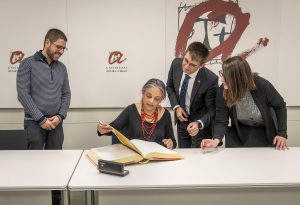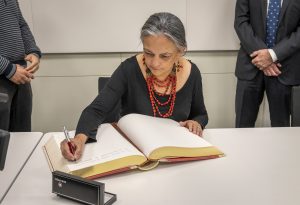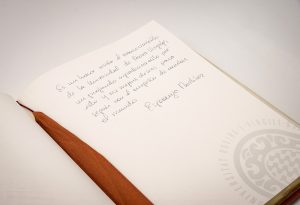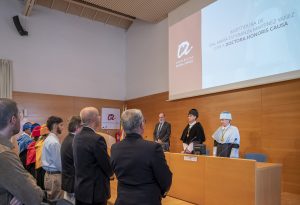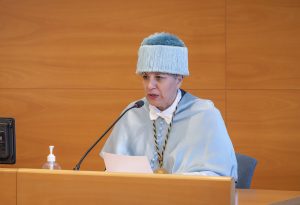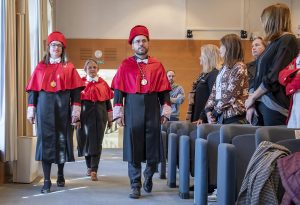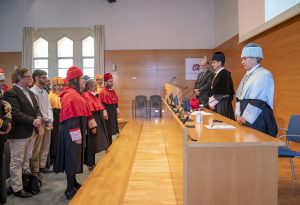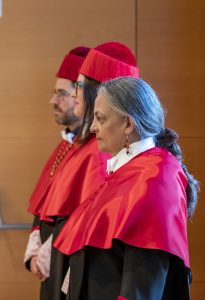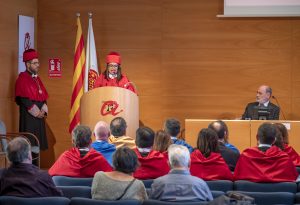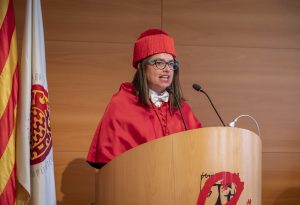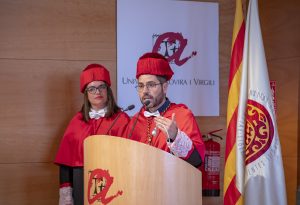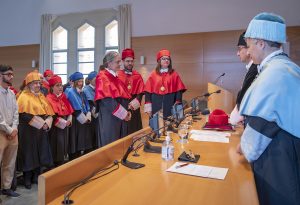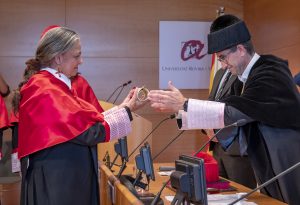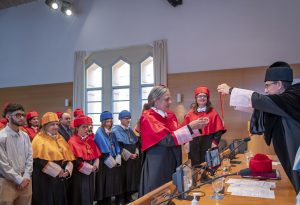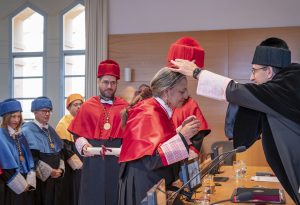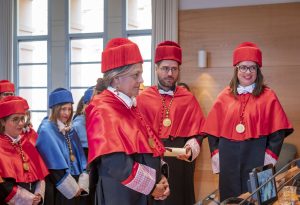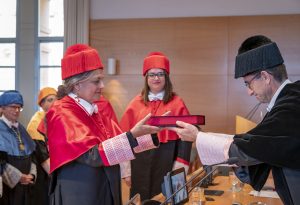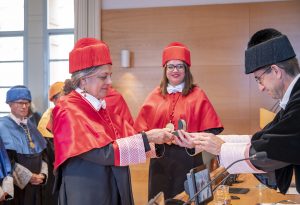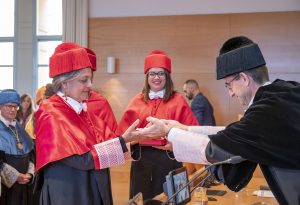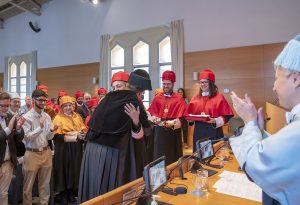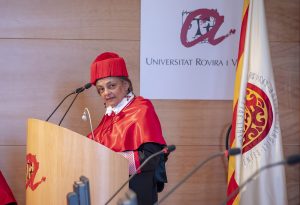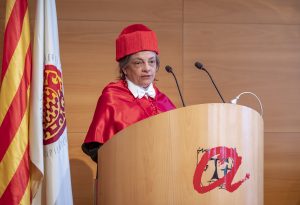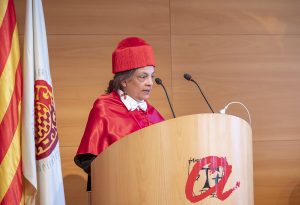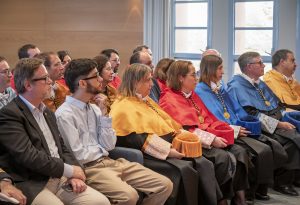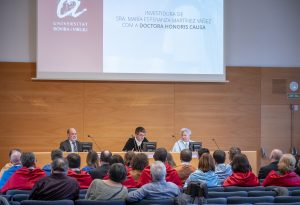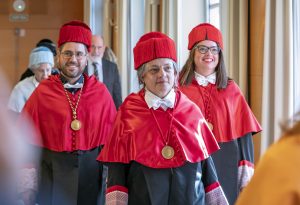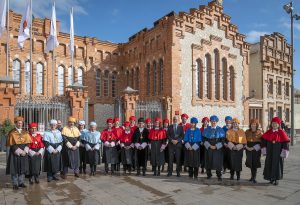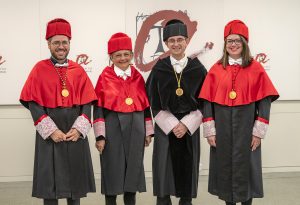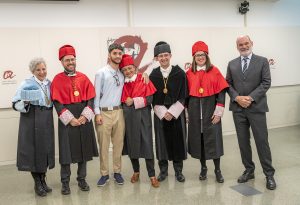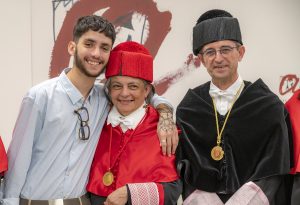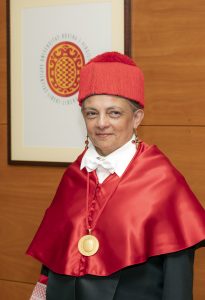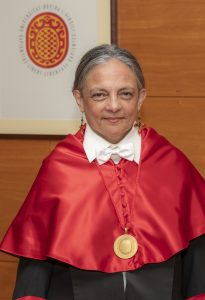11/11/2022
The lawyer and biologist Esperanza Martínez Yáñez has been awarded an honorary degree by the URV
The academic and activist has coined the concept of the law of nature, a key idea in the reformulation of law so that it recognizes nature as a subject and does away with the idea that nature is a resource available to humans

The academic and activist has coined the concept of the law of nature, a key idea in the reformulation of law so that it recognizes nature as a subject and does away with the idea that nature is a resource available to humans
Nature has rights. This is the concept that has helped to change the anthropocentric perspective from which we look at the world and turns nature into a subject instead of an object or a resource at the disposition of humans. It is already being introduced into legislation (in Spain a law approved this September recognizes that the Mar Menor ecosystem has its own rights) and some constitutions (for example, in Ecuador), and it has been recognized in some rulings. These changes will eventually lead to the reformulation of the law, the policies and the performance standards of all social agents, as has happened throughout history when there have been changes in the legal paradigm. The driving force behind these changes is Esperanza Martínez Yáñez, a biologist and lawyer who has today been awarded an honorary degree by the URV.
Martínez’s task has not been and is not easy, among other reasons because she has been threatened with physical violence in just the same way that so many other defenders of environmental rights have. Esperanza Martínez said that the award of the honorary degree is for all these people, “all the activists who work, make contributions that are invisible and help to maintain the seeds of the future”. In fact, Martínez is both an activist and an academic, and the combination of these two facets has led her to lead several non-profit organizations for the defence of nature and the environment and achieve milestones such as stopping the extraction of crude oil from the Yasuní National Park (Ecuador).
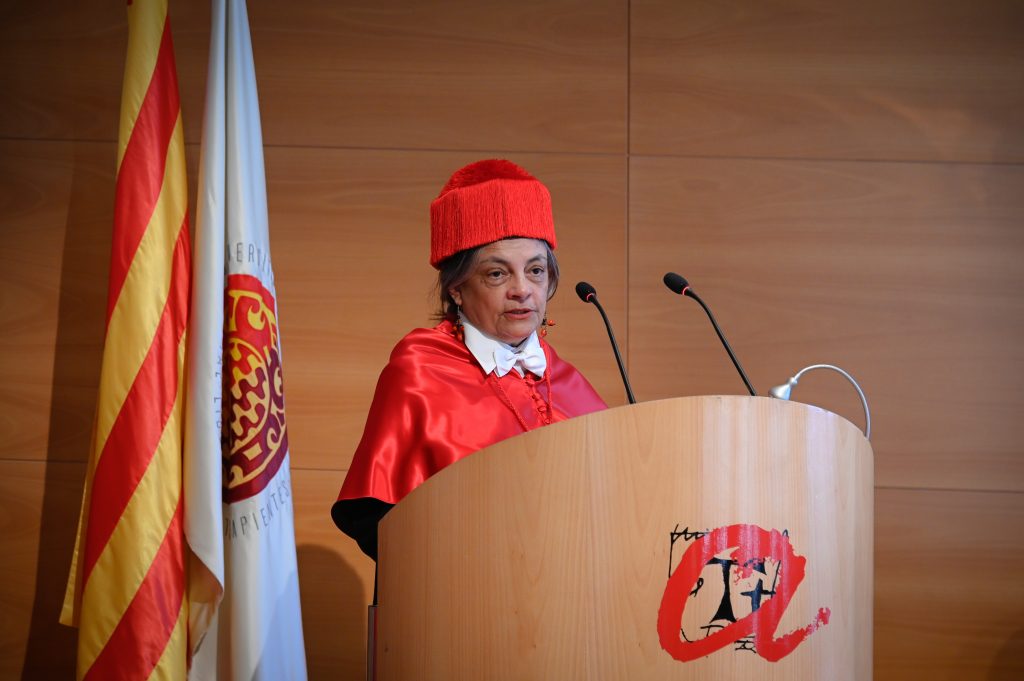
Esperanza Martínez pointed out in her speech that the laws of science have explained the relationship humans have with the world and that because of the dissociation between people and “the place where life is reproduced”, “nature became inert, its components are resources and we are all competitors”. We do not consider ourselves as a whole. This break from nature was “a condition for the development of the new Europe, of the Middle Ages and the Renaissance, and above all, of the Modernity of this continent”, she said. This vision prevailed and “transformed the most intimate matrix of local cultures”, which professed a greater love of life and nature, the customs of sharing and caring and had a vision of power more as a responsibility than as a domination.
This and the fragmentation of knowledge, the specialization in the generation of formal knowledge, “has taken its toll on human societies because it prevents us from seeing the whole and distances us from nature, which has become subordinate and manipulable.” And in this context resources are exploited. This exploitation has altered the biological, geological and chemical relationships of the planet and done away with biodiversity and the last peoples who preserved it. For this reason and to understand today’s problems, Esperanza Martínez proposes to “rethink nature” from all areas, combining the knowledge of the academy and the experience of, for example, the Amerindian peoples where Martínez comes from, with a “philosophy that establishes relations of correspondence and complementarity between the cosmic and the human, the organic and the inorganic”.
Her speech was an allegation about the rights of nature, understood as a “subject” that instils in people the courage they need to “fight for life, for the earth, for water, despite the risk to their own lives.”
Dr Martínez was nominated by the Department of Public Law, which has a long track record of work and research on environmental law. Professors Aitana de la Varga and Victor Merino were both responsible for the encomium. De la Varga appealed to the “need to make this reality of violence visible and to support the women who were fighting for the environment” and gave a brief summary of Dr Martínez’s career as an activist: she founded Ecological Action (an organisation that defends the people affected by extractive activities), the Institute of Ecological Studies of the Third World (which encourages debate in the academy) and Red Oilwatch, an oil policy observatory with members from 45 countries from three continents. She also promotes the Amazon for Life campaign.
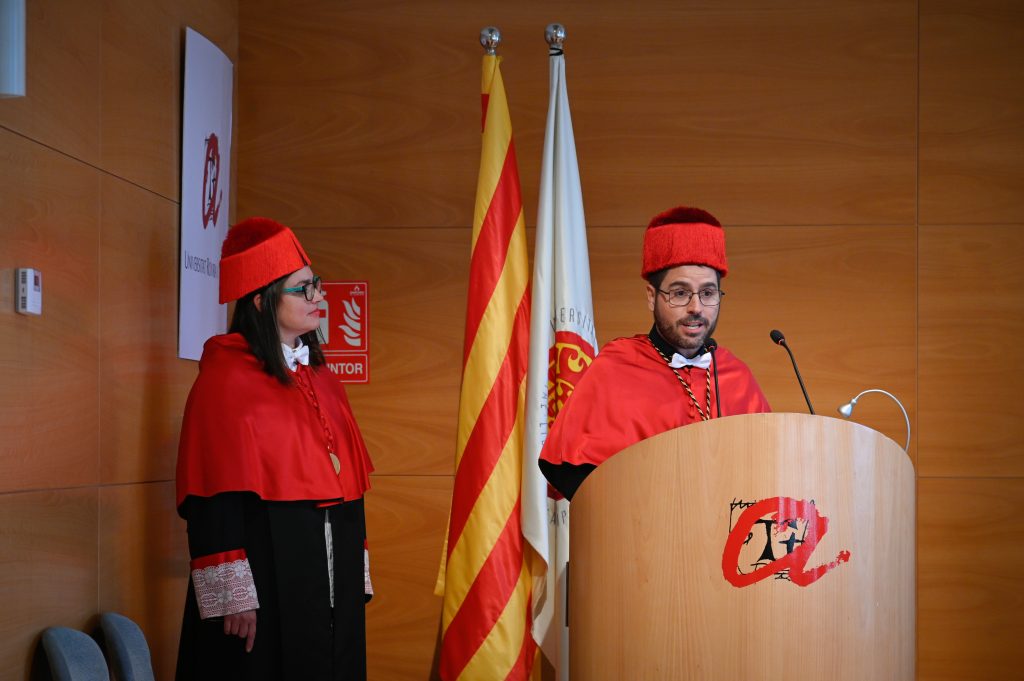
Victor Merino explained the importance of Martínez Yáñez for the field of law: “Her contribution has distinguished the right of human beings to a healthy environment, recognized in numerous regulations, from the rights of Nature”. She has made it possible to advance towards “the express recognition of ecosystem rights, the establishment of obligations for public authorities and the reiteration of States’ responsibilities in climate protection, and the obligation to recognize rights for future generations.”
This perspective, explained Merino, is already being introduced in legislation and some legal rulings “intuit a change in the legal paradigm, which is fundamental if there is to be subsequent transformation”, in just the same way as the regulations for adaptation to climate change, for example. It has also been introduced in the Constitution of Ecuador, thanks to the constituent process in which Esperanza Martínez played a prominent role in 2008, as an advisor to the president of the National Constituent Assembly, Alberto Acosta.
After the encomium, the rector, Josep Pallarès, invested Esperanza Martínez Yañez as an honorary degree holder. The day of the ceremony coincided with the Egyptian Climate Summit, “which reminds us of the gravity and the catastrophic consequences of violating the rights of nature for our landscape and the people who inhabit it.” “We hope that in the not-too-distant future this right of nature will be added to the list of fundamental rights that appear in all the constitutions of democratic countries,” concluded Pallarès.
To welcome Esperanza Martínez to the URV community as a new honorary degree holder, the rector gave her the diploma that accredits the highest distinction the University can give, the medal and the academic cap, as well as the book of science and wisdom, the ring given as a symbol of the privilege of sealing the opinions of science and the profession, and the white gloves.
Gallery of images
Complete ceremony
More news about: Honoris Causa
